This Week @ NASA--April 14, 2017
This Week @ NASA--April 14, 2017
Cassini and the Hubble Space Telescope, two of our long-running missions, are providing new details about the ocean-bearing moons of Jupiter and Saturn. Hubble’s monitoring of plume activity on Europa and Cassini’s long-term investigation of Enceladus are laying the groundwork for our Europa Clipper mission, slated for launch in the 2020s. Also, Shane Kimbrough returns home after 171 days aboard the Space Station, celebrating the first Space Shuttle mission and more!

Ocean Worlds
Our two long-running missions, Cassini and the Hubble Space Telescope, are providing new details about “ocean worlds,” specifically the moons of Jupiter and Saturn.

The details – discussed during our April 13 science briefing – included the announcement by the Cassini mission team that a key ingredient for life has been found in the ocean on Saturn’s moon Enceladus.

Meanwhile, in 2016 Hubble spotted a likely plume erupting from Jupiter’s moon Europa at the same location as one in 2014, reenforcing the notion of liquid water erupting from the moon.

These observations are laying the groundwork for our Europa Clipper mission, planned for launch in the 2020s.

Welcome Home, Shane!
Shane Kimbrough and his Russian colleagues returned home safely after spending 173 days in space during his mission to the International Space Station.

Meet the Next Crew to Launch to the Station
Meanwhile, astronaut Peggy Whitson assumed command of the orbital platform and she and her crew await the next occupants of the station, which is slated to launch April 20.

Student Launch Initiative
We’ve announced the preliminary winner of the 2017 Student Launch Initiative that took place near our Marshall Space Fight Center, The final selection will be announced in May. The students showcased advanced aerospace and engineering skills by launching their respective model rockets to an altitude of one mile, deploying an automated parachute and safely landing them for re-use.

Langley’s New Lab
On April 11, a ground-breaking ceremony took place at our Langley Research Center for the new Systems Measurement Laboratory. The 175,000 square-foot facility will be a world class lab for the research and development of new measurement concepts, technologies and systems that will enable the to meet its missions in space explorations, science and aeronautics.

Yuri’s Night
Space fans celebrated Yuri’s Night on April 12 at the Air and Space Museum and around the world. On April 12, 1961, cosmonaut Yuri Gagrin became the first person to orbit the Earth.

Celebrating the First Space Shuttle Launch
On April 12, 1981, John Young and Bob Crippin launched aboard Space Shuttle Columbia on STS-1 a two-day mission, the first of the Shuttle Program’s 30-year history.

Watch the full episode:
Make sure to follow us on Tumblr for your regular dose of space: http://nasa.tumblr.com
More Posts from Green-notebooks and Others
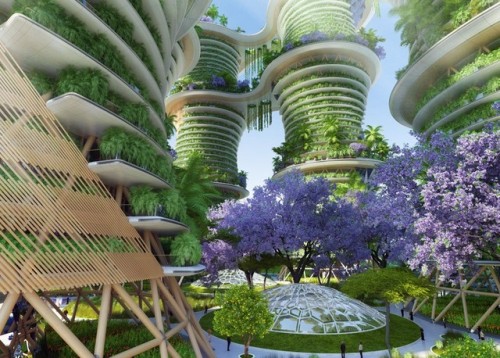

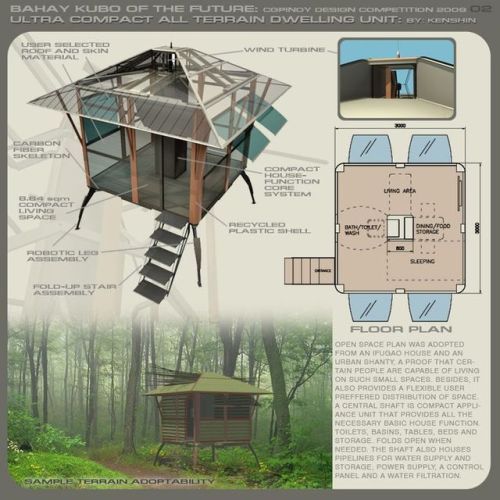
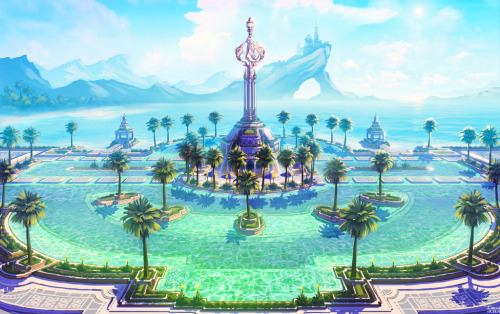

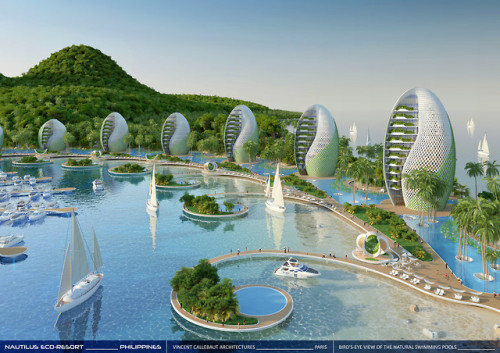

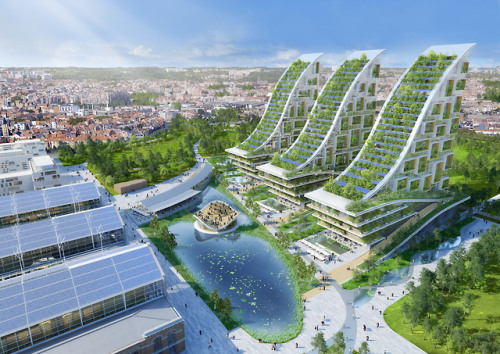

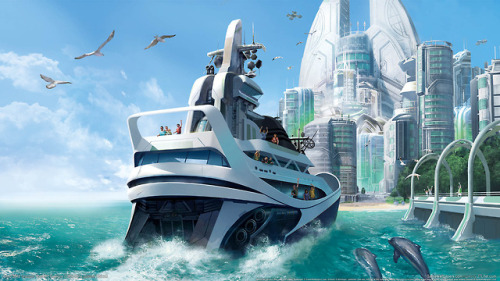
Concept: Wakandan-inspired futuristic Philippines or Neo-philippines!
Solarpunk conflict Sugestions
Naturalist Vs Bioengineers:
Trouble could be brewing between two ideologies in your solarpunk setting. Those who believe in keeping nature ‘pure’ and those who believe in integrating nature and technology closer together.
New world Vs old remnants
A lot of mistakes were made before the world reached its current setting. What if one of those mistakes has survived? A malfunctioning weaponised drone/robot is accidentally reactivated and now prowls the streets and it’s a race against time to stop it.
Solarpunk Vs Lunarpunk
Conflicting cultures. City dwells vs nomadic tribes. Eco tech vs. Eco occultism. Two different branches of humanity struggling to understand one another and clashing cultural values.
Man vs the dark side of nature
Mankind may have stopped being a threat to the planet, but the natural world is full of threats. new diseases and plant blights are always evolving, not to mention eruptions, floods, droughts, and meteors all still happen.
New tech murder mystery
Society as a whole may be better, but crime still happens. What is it like being a detective in such a world? how many new ways does the world’s new biotech provide for murderers looking to get away with it?
what if we did large-scale mutual aid. like what if everyone in a community contributed, idk, like, a percentage of their annual income into some kind of a mutual aid fund. they could appoint community leaders to allocate funding for community needs like health and other social services, rental aid, transportation to get to work and other places, maybe even for building community spaces that would be free to use. has anyone thought of this
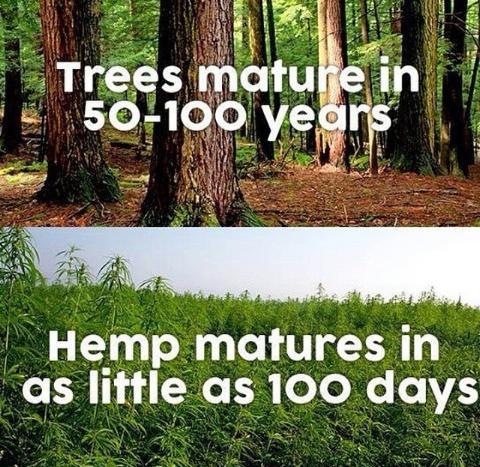
#SaveTheTrees
Vegans of tumblr, listen up. Harvesting agave in the quantities required so you dont have to eat honey is killing mexican long-nosed bats. They feed off the nectar and pollinate the plants. They need the agave. You want to help the environment? Go back to honey. Your liver and thyroid will thank you, as well. Agave is 90% fructose, which can cause a host of issues. Bye.
“Social Ecology: The notion that man must dominate nature emerges directly from the domination of man by man… But it was not until organic community relations… dissolved into market relationships that the planet itself was reduced to a resource for exploitation. This centuries-long tendency finds its most exacerbating development in modern capitalism. Owing to its inherently competitive nature, bourgeois society not only pits humans against each other, it also pits the mass of humanity against the natural world. Just as men are converted into commodities, so every aspect of nature is converted into a commodity, a resource to be manufactured and merchandised wantonly … The plundering of the human spirit by the market place is paralleled by the plundering of the earth by capital.”
— Murray Bookchin, Post-Scarcity Anarchism (via milkboydotnet)





Happy Earth Day!! Tick off your progress of your zero-waste journey! How many do you do already and how many will you be able to do by the end of the year?
Going zero waste is something that everyone adapts to differently according to what they have available, so do what you can, be aware and spread the word!
I wanted to add a link to every product, and I also need to add some other things but if you want to help me out that’d be great!
This is truly incredible.




Blue Pixie’s Parasol (Mycena Interrupta) or subspecies.
Mycena interrupta, commonly known as the pixie’s parasol, is a species of mushroom. It has a Gondwanan distribution pattern, being found in Australia, New Zealand, New Caledonia and Chile. In Australia it is found in Victoria, Tasmania, New South Wales, and South Australia, and in Queensland where its distribution is limited to Lamington National Park. Description The caps of Mycena interrupta range from 0.8 to 2 cm, and they are a brilliant cyan blue colour. They are globose when emergent and then become a broad convex as they mature, with the centre of the cap slightly depressed. The caps are often sticky and appear slimy looking, particularly in moist weather.
-
 richardfitzw3ll liked this · 4 years ago
richardfitzw3ll liked this · 4 years ago -
 starbabi-72 liked this · 6 years ago
starbabi-72 liked this · 6 years ago -
 green-notebooks reblogged this · 6 years ago
green-notebooks reblogged this · 6 years ago -
 fredrick-smith liked this · 7 years ago
fredrick-smith liked this · 7 years ago -
 marianecollier-blog liked this · 7 years ago
marianecollier-blog liked this · 7 years ago -
 mabemmbv liked this · 7 years ago
mabemmbv liked this · 7 years ago -
 nnkhld liked this · 7 years ago
nnkhld liked this · 7 years ago -
 casual3joslyn-blog liked this · 7 years ago
casual3joslyn-blog liked this · 7 years ago -
 treblewinners liked this · 7 years ago
treblewinners liked this · 7 years ago -
 returntothehorse liked this · 7 years ago
returntothehorse liked this · 7 years ago -
 tumbleweed-chaser liked this · 8 years ago
tumbleweed-chaser liked this · 8 years ago -
 robert-kyle-blog liked this · 8 years ago
robert-kyle-blog liked this · 8 years ago -
 computer--cats liked this · 8 years ago
computer--cats liked this · 8 years ago -
 sixthrangerknight reblogged this · 8 years ago
sixthrangerknight reblogged this · 8 years ago -
 perfectpeacecheesecake-blog reblogged this · 8 years ago
perfectpeacecheesecake-blog reblogged this · 8 years ago -
 deafeningengineerfestival-blog reblogged this · 8 years ago
deafeningengineerfestival-blog reblogged this · 8 years ago -
 theshyfirestudentfan-blog reblogged this · 8 years ago
theshyfirestudentfan-blog reblogged this · 8 years ago -
 totallyloudcollection-blog reblogged this · 8 years ago
totallyloudcollection-blog reblogged this · 8 years ago -
 annoyinglyfouldestiny-blog reblogged this · 8 years ago
annoyinglyfouldestiny-blog reblogged this · 8 years ago -
 beautifulpainterturtle-blog reblogged this · 8 years ago
beautifulpainterturtle-blog reblogged this · 8 years ago -
 profoundlymagicalnut-blog reblogged this · 8 years ago
profoundlymagicalnut-blog reblogged this · 8 years ago -
 lazilypleasantbouquet-us-blog reblogged this · 8 years ago
lazilypleasantbouquet-us-blog reblogged this · 8 years ago -
 shabbo-94 liked this · 8 years ago
shabbo-94 liked this · 8 years ago -
 jchapa13 liked this · 8 years ago
jchapa13 liked this · 8 years ago -
 dopeyland liked this · 8 years ago
dopeyland liked this · 8 years ago -
 wildflower-madness liked this · 8 years ago
wildflower-madness liked this · 8 years ago -
 punkrockdragon liked this · 8 years ago
punkrockdragon liked this · 8 years ago -
 iamsavannahmay liked this · 8 years ago
iamsavannahmay liked this · 8 years ago -
 wyndighosts liked this · 8 years ago
wyndighosts liked this · 8 years ago -
 violetsprite liked this · 8 years ago
violetsprite liked this · 8 years ago -
 thespoonslobeliastole reblogged this · 8 years ago
thespoonslobeliastole reblogged this · 8 years ago -
 waywardbf reblogged this · 8 years ago
waywardbf reblogged this · 8 years ago -
 alejandromaquedablog liked this · 8 years ago
alejandromaquedablog liked this · 8 years ago -
 dbird051077 liked this · 8 years ago
dbird051077 liked this · 8 years ago -
 nezuminoyuki liked this · 8 years ago
nezuminoyuki liked this · 8 years ago -
 apresonantory liked this · 8 years ago
apresonantory liked this · 8 years ago -
 hotshoecustoms liked this · 8 years ago
hotshoecustoms liked this · 8 years ago -
 youaurendenial reblogged this · 8 years ago
youaurendenial reblogged this · 8 years ago -
 youaurendenial liked this · 8 years ago
youaurendenial liked this · 8 years ago -
 xr3ckl3ssx liked this · 8 years ago
xr3ckl3ssx liked this · 8 years ago -
 abdounelahcene liked this · 8 years ago
abdounelahcene liked this · 8 years ago